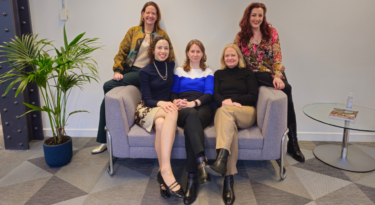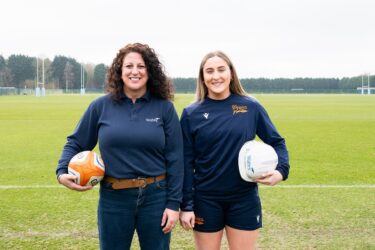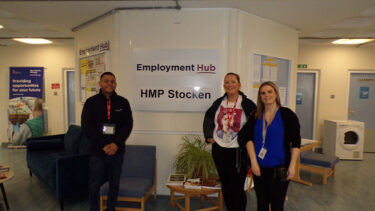Helen Bunch is Executive Managing Director of Wates’ residential business and a member of Wates Group’s Executive Committee. She is also the Executive sponsor of Wates’ gRace and Allies network, one of five voluntary employee networks established to help steer our vision of inclusion at Wates.
In this article, released as part of Wates’ Inclusion Month in October, Helen discusses her personal journey of inclusion. For Helen Bunch, her role as Executive MD of Wates Residential is the culmination of a varied international career journey.
Living abroad as a child, Helen became used to travelling, and really enjoyed meeting people from all sorts of backgrounds. This inspired her to seek out chances to travel in her professional life too, and before joining Wates in 2006, she spent over a decade working in the chemical industry, working in the US, Asia and across Europe, while also travelling extensively outside work.
Journey of Inclusion
It’s unsurprising, given her love of travel and her cultural immersion as an ex-pat, that Helen feels that she has been on an inclusion journey for most of her life.
But it was the murder of George Floyd in 2020, and the way that the world has since reacted, that gave Helen a wake-up call, and inspired her to do more.
“I saw how other people in that community were really affected. I didn’t understand why, so it was wanting to understand, beyond the awful police brutality, what was it about this particular case that resonated and mobilised people. What wasn’t I understanding about that, that I should do, to better understand friends and colleagues?”
Effects of Exclusion
Never one to shy away from new experiences, Helen was keen to join Wates’ reverse mentoring programme, where she was paired with a mentor, Krystal, a woman of colour from another part of the Wates Group. Of her mentor, she says:
“Krystal prepared lots of materials for me and truly gave the process her all.”
As they discussed matters of race and ethnicity, Helen reflected on her background, particularly on her post-university stint living in Japan, which proved a formative experience for her understanding of inclusion and feeling first-hand, if only briefly, the effects of exclusion.
As the only foreigner living and working in a small town near Mount Fuji, Helen was conscious of how different she looked to her co-workers, yet how included she was made to feel. She would often chat with her colleagues, whose genuine curiosity and interest really made her feel welcomed. Through these conversations, they enjoyed comparing and finding differences between their lives, while also discovering many shared values.
On the flip side, a less fond memory sticks in Helen’s mind:
“I remember being on a bus, a really full bus. I got on quite early, as I was going quite far into the Japanese countryside. I had an empty seat next to me, and it was really busy, but nobody would sit there. I felt really uncomfortable about sitting on that bus. Nobody knew me, they didn’t know what sort of person I was. But I felt that because of how I looked, they had made assumptions about me. Maybe on that bus, they thought I didn’t want them to sit next to me?”
Helen makes it very clear that she knows this incident was nothing like as serious an example of discrimination as those she’s heard through Wates’ listening groups or on the news, But the inclusion conversations at Wates have reminded her of how it felt, which has spurned her on to question her own biases and assumptions, and work to overcome them.
Positive Action
Participating in reverse mentoring and Inclusive Leadership programmes has given Helen a new perspective on race, equity and inclusion. She strongly believes in positive action, and that we can’t move the dial on inclusivity and diversity without taking action. She makes the point, however, that it’s not just about hiring from underrepresented groups and leaving people to their own devices.
“One of the worst things you can do is give a job to a female candidate just because she is female. It will not only damage her confidence if she fails, but also feeds the critics. So, we need to look internally to see if we are offering people the best development plans and enough opportunities for people to succeed. Because there are so few [people from minority groups], it’s ensuring they don’t get lost amongst the mass.”
Starting the inclusion journey
It’s Helen’s firm belief that inclusion is not anti-majority, and to make a change, positive action is required. But she understands that there may be a hesitancy to begin that journey. She shared one piece of advice on how to get started:
“A lot of people are frightened of upsetting others, because they don’t know how to say somebody’s name. If you don’t know how to say a person’s name, how do you engage, talk to them and learn about them? So, ask. I have never had a bad reaction if I say to somebody, “I am going to try to pronounce your name, but let me know if I have gotten it wrong.” Start that conversation, don’t be frightened. And then you can do something about it.”




